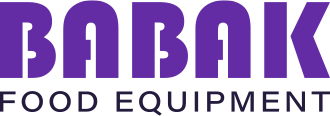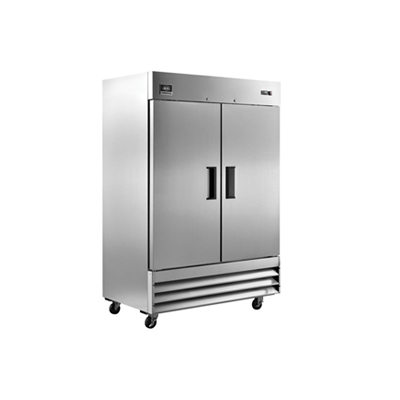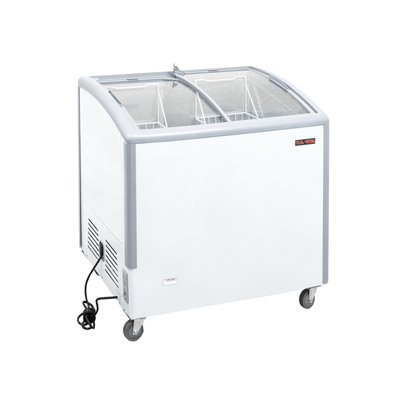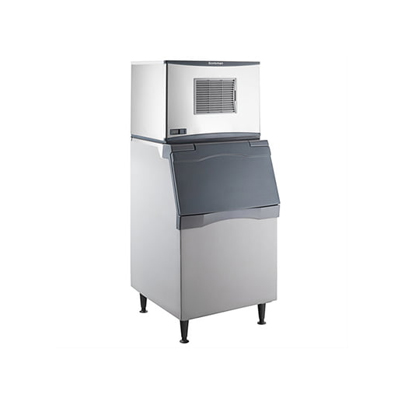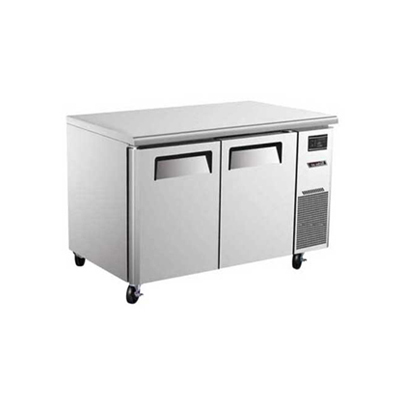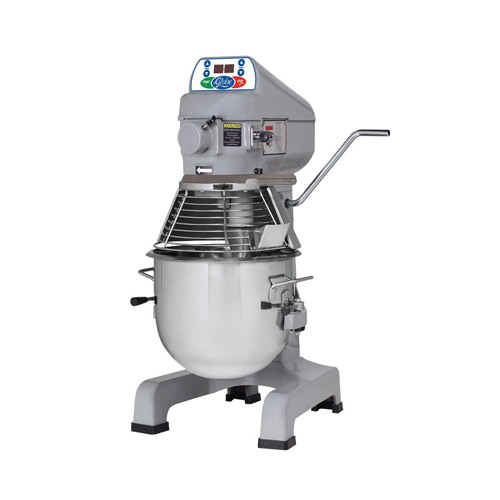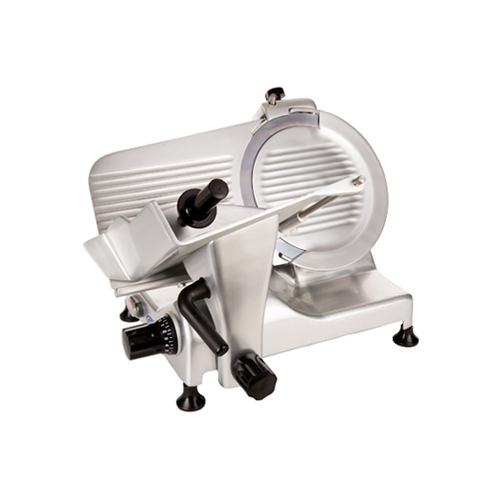Commercial Convection Oven: Essential for Canadian Restaurants
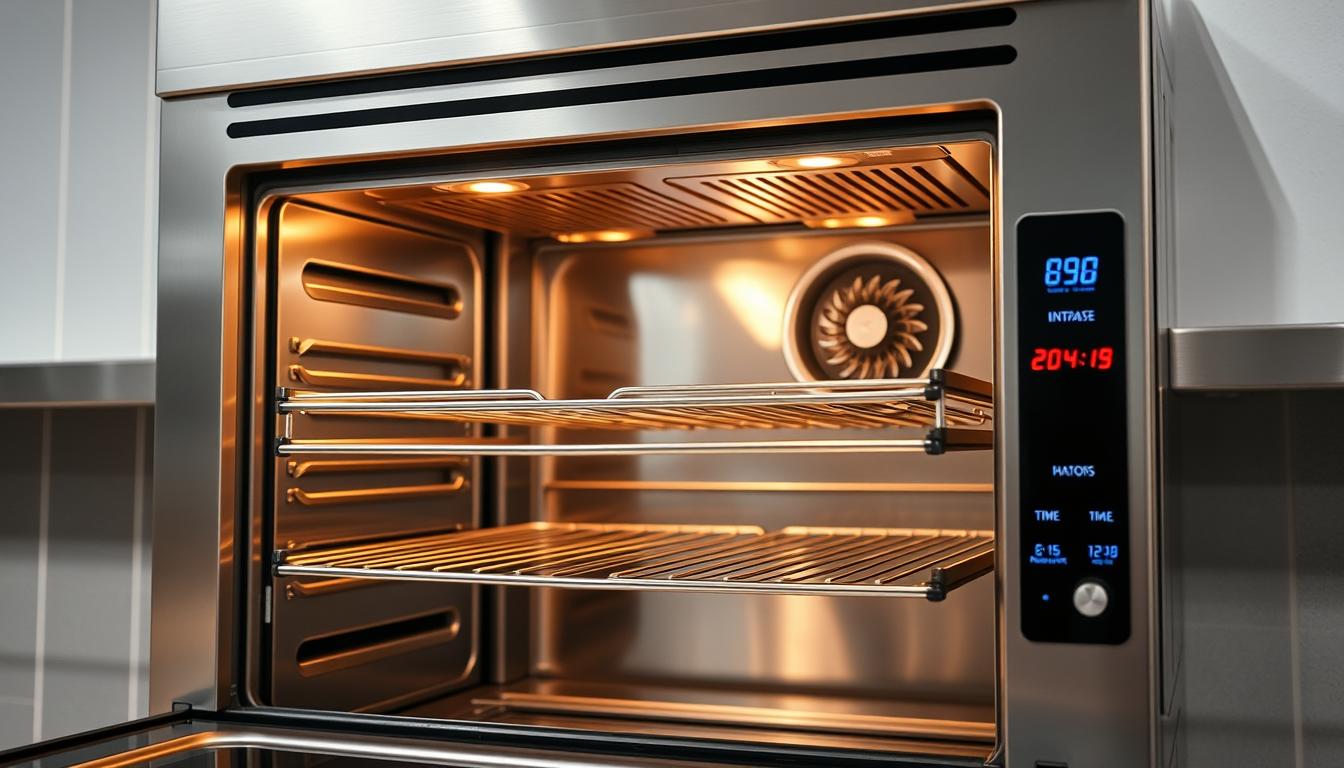
Did you know that convection ovens can cook and bake up to 25% faster than traditional ovens? For Canadian restaurants, this efficiency is a game-changer. These ovens use fan-assisted heating to ensure even cooking, making them ideal for baking, roasting, and cooking a variety of dishes consistently.
Whether you’re running a busy restaurant or a small bakery, a convection oven is a must-have. Leading models, like those from Garland and Blodgett, offer advanced features that enhance performance. For instance, the Blodgett DFG-100-ES model boasts a 54% energy efficiency rating, while the Mark V-100 model reaches an impressive 78% efficiency.
Babak Food Equipment stands out as a trusted supplier, offering high-quality convection ovens designed with stainless steel for durability. Their focus on performance and customer support makes them a reliable choice for Canadian restaurants. For inquiries, you can reach them at 6045669747.
This article will guide you through the key aspects of convection ovens, including their technical features, energy efficiency, and installation considerations. We’ll also provide practical advice on selecting the right oven for your needs, addressing factors like price, size, and performance.
For more detailed information, visit Central Restaurant Equipment or Babak Food Equipment for expert guidance.
Understanding Commercial Convection Ovens
Commercial convection ovens are a cornerstone in Canadian kitchens, offering unparalleled efficiency and versatility. These ovens use fan-assisted heating to circulate hot air, ensuring even cooking and faster results. Whether you’re baking pastries or roasting meats, a convection oven is an indispensable tool.
Features and Operational Benefits
Modern convection ovens boast advanced features like precise temperature control and rapid preheating. They are built with durable materials such as stainless steel, ensuring a long-lasting oven cavity. The even heat distribution eliminates hot spots, leading to consistent cooking results.
Comparing Gas, Electric, and LPG Models
Choosing the right fuel type is crucial. Gas models, including natural gas and propane, offer faster cooking speeds and lower operational costs. Electric models, while more energy-efficient, may have higher electricity costs. LPG models provide flexibility for establishments without access to natural gas.
| Fuel Type | Energy Efficiency | Cooking Speed | Cost |
|---|---|---|---|
| Natural Gas | 54-78% | Fast | Lower Operational |
| Electric | 71-76% | Moderate | Higher Electricity |
| LPG | Similar to Gas | Fast | Varies |
Each fuel type has its benefits, but all models provide precise temperature control and consistent results. Consider your kitchen’s needs and budget when selecting the perfect oven.
Product Overview by Babak Food Equipment
Babak Food Equipment stands out as a trusted name in the Canadian market, offering high-performance convection ovens designed for durability and efficiency. Their ovens are built with stainless steel, ensuring a long-lasting and robust construction that withstands the demands of busy kitchens.
Quality and Reliability in Canadian Kitchens
Babak’s ovens integrate advanced features like precise convection technology, ensuring consistent cooking results across various pan sizes. Whether you’re baking pastries or roasting meats, these ovens deliver even heat distribution and faster cooking times.
Their models come with versatile fuel options, including natural gas and propane, offering flexibility for different kitchen setups. This innovation enhances kitchen performance and operational continuity.
Contact Information and Support
For inquiries or support, reach Babak Food Equipment at 604-566-9747. They offer competitive pricing, after-sales support, and financing options, making them a reliable partner for restaurant owners.
| Feature | Details | Benefits |
|---|---|---|
| Stainless Steel Build | Durable, resistant to corrosion | Long-lasting, easy to clean |
| Precise Convection | Even heat distribution | Consistent cooking results |
| Versatile Fuel Options | Natural Gas, Propane | Flexibility for different kitchens |

Key Specifications and Performance Metrics
When selecting a convection oven, understanding its technical specifications is crucial for optimal performance. High-performing models often feature advanced designs and materials that enhance durability and efficiency.
Design Elements and Material Durability
Premium convection ovens are built with stainless steel and welded steel, ensuring longevity in busy kitchens. The oven cavity design plays a significant role in heat distribution and cooking speed, with standard depth models accommodating five 18″ x 26″ pans and bakery depth models offering deeper space for better airflow.
Fuel Efficiency and Cooking Speed
Natural gas and propane models offer faster preheating and lower operational costs. For instance, gas convection ovens have BTU ratings of 75,000 for standard depth and 90,000 for bakery depth, while electric models operate at 2 KW. Electric ovens, though energy-efficient, may incur higher electricity costs over time.
Size and Configuration Impact
Full-size ovens hold five or more standard pans, while half-size models accommodate one or more half-sized pans. Single deck ovens provide storage space, and double deck models increase capacity. Proper airflow, requiring 1″ clearance, is essential for optimal performance.
Performance Metrics and Innovations
Leading models feature precise temperature control (200°F – 500°F) and rapid preheating. Innovations like pulse fan speed reduce cooking time by up to 25% and lower temperatures by 30%, ideal for dishes like muffins and soufflés. These advancements ensure even results across various menu items.
For more details on selecting the right oven, visit Babak Food Equipment to explore their high-performance solutions.
Installation and Operational Considerations
Proper installation is crucial for the safe and efficient operation of your convection oven. Ensuring all electrical, gas, and ventilation requirements are met will help prevent potential hazards and optimize performance.
Electrical, Gas, and Ventilation Requirements
Start by ensuring your oven is installed on a level surface. For electrical connections, most models require a 208 VAC or 240 VAC power supply. A dedicated circuit breaker is necessary, sized according to the oven’s amperage. Gas models need proper connections to natural gas or propane lines, with a qualified technician ensuring safety protocols are followed.
Ventilation is another critical factor. Your kitchen must have an exhaust system that meets local codes to remove fumes and heat effectively. Maintain minimum clearances around the oven, including 2 inches on the sides and rear, and 6 inches from the floor to combustibles.
| Requirement | Details |
|---|---|
| Electrical Connection | 208 VAC or 240 VAC |
| Gas Hookup | Natural gas or propane |
| Ventilation | Exhaust system meeting local codes |
| Clearance | 2″ sides, 2″ rear, 6″ floor |
Consider the oven’s size and deck configuration to ensure it fits well in your kitchen. Full-size models may require more space, while half-size options offer flexibility. Proper installation by a qualified professional is essential to avoid operational issues and ensure safety.

Energy Efficiency and Cost Savings
Energy efficiency is a critical factor for Canadian restaurants aiming to reduce operational costs and environmental impact. By choosing high-efficiency convection ovens, businesses can significantly lower their utility bills while maintaining high performance.
Lower Utility Bills and Reduced Environmental Impact
Energy-efficient convection ovens are designed to consume less power while delivering exceptional results. For instance, an ENERGY STAR certified gas convection oven can save approximately $140 annually on utility bills. This not only cuts costs but also reduces the restaurant’s carbon footprint, promoting sustainable practices.
These ovens often feature advanced technologies like pulse fan speed, which can reduce cooking time by up to 25% and lower temperatures by 30%. This innovation is particularly beneficial for dishes like muffins and soufflés, ensuring even results without excessive energy use.
Long-Term Operational Cost Benefits
While the initial price of energy-efficient models may be higher, the long-term savings in energy and maintenance make them a wise investment. For example, an ENERGY STAR certified electric convection oven can save businesses about $670 over the product’s lifetime compared to standard models.
Smaller, half-size models are ideal for spaces with limited room but high energy efficiency needs. They offer significant savings without compromising on performance, making them a practical choice for many Canadian restaurants.

By investing in energy-efficient convection ovens, restaurants can enjoy both financial and environmental benefits, supporting their bottom line while promoting sustainability.
How to Choose the Perfect Commercial Convection Oven
Choosing the right convection oven for your Canadian restaurant can be a daunting task, but with the right approach, it becomes manageable. Let’s break it down into key factors to consider.
Selecting the Right Size and Deck Configuration
The size of your oven should match your kitchen’s production needs. A full-size oven is ideal for high-volume kitchens, accommodating multiple pans, while a half-size oven suits smaller spaces without compromising efficiency.
| Size | Pan Capacity | Suitable For |
|---|---|---|
| Full Size | 5+ standard pans | High-volume kitchens |
| Half Size | 1-2 half-size pans | Smaller restaurants |
Deck configuration also matters. Single-deck ovens are great for simplicity, while double-deck models increase capacity, perfect for busy environments.
Evaluating Safety Features, Warranty, and Brand Reputation
Safety is paramount. Look for features like anti-overheat cut-offs and stay-cool handles. A reliable warranty and strong brand reputation, such as Blodgett or Garland, ensure long-term support and durability.
| Brand | Price Range | Key Features |
|---|---|---|
| Blodgett | $5,000-$10,000 | High energy efficiency, durable build |
| Garland | $4,000-$9,000 | Advanced convection technology |
| Omcan | $3,000-$7,000 | Affordable with robust features |
Investing in a reputable brand ensures reliability and performance, crucial for your kitchen’s success.

Navigating Options: Buying Guide and Industry Insights
When it comes to selecting the right convection oven for your Canadian restaurant, the process can feel overwhelming. However, with the right approach, you can make an informed decision that boosts your kitchen’s efficiency and productivity.
Expert Tips for Enhancing Kitchen Productivity
Strategic placement of your convection oven can significantly enhance your kitchen’s workflow. Positioning it near food preparation areas reduces movement, saving time and effort. Additionally, implementing optimal operating practices, such as preheating and batch cooking, can maximize efficiency.
Trends and Innovations in Oven Technology
Modern convection ovens now feature digital controls and smart fan speed adjustments, allowing for precise temperature management. Automated recipe settings are also becoming popular, enabling consistent results with minimal effort. These innovations not only improve cooking speed but also reduce energy consumption.
| Feature | Details | Benefits |
|---|---|---|
| Digital Controls | Precise temperature and timer settings | Consistent cooking results |
| Smart Fan Speed | Adjustable fan settings for even cooking | Reduced cooking time |
| Automated Recipes | Pre-programmed settings for various dishes | Effortless cooking |
As Russell Hendrix notes, “Investing in a convection oven with advanced features can transform your kitchen’s operations, offering both efficiency and consistency.”

When navigating purchasing options, consider factors like price, size, and operational costs. Researching and comparing these aspects will help you find the oven that best fits your needs and budget, ensuring long-term benefits for your restaurant.
Conclusion
Investing in a high-quality convection oven is a smart move for Canadian restaurants seeking to enhance efficiency and performance. These ovens offer faster cooking times, consistent results, and energy savings, making them a valuable asset for any kitchen.
With options like gas, electric, and LPG models, there’s a convection oven to fit every kitchen’s needs. Proper installation and adherence to ventilation requirements ensure safe and optimal operation. Energy-efficient designs can significantly reduce utility bills and environmental impact, offering long-term cost benefits.
Babak Food Equipment is a trusted partner, providing durable and efficient solutions. Their ovens are built to last, with features like precise temperature control and even heat distribution. For more information on their high-performance models, visit Babak Food Equipment.
When choosing an oven, consider your kitchen’s size, production needs, and budget. Assessing these factors ensures you find the perfect fit. Don’t hesitate to reach out to Babak Food Equipment at 604-566-9747 for expert guidance and support.
Upgrade your kitchen with a well-designed, energy-efficient convection oven. It’s an investment that promises to streamline operations and deliver consistent results, supporting your restaurant’s success for years to come.
